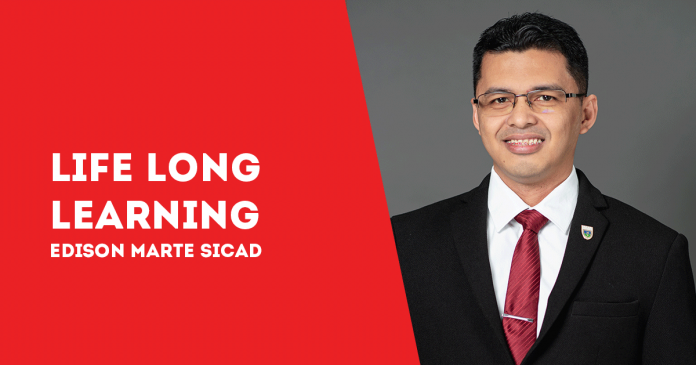
BY EDISON MARTE SICAD
“Is Honesty an inherent quality of a successful politician?”
“Do voters need to study and compare the platforms of the candidates?”
“Is politics a family affair?”
We are not dealing here with topics as expounded by the ancient philosophers. Plato and Aristotle, among others, had already given us enough principles to ponder and live by.
Let us just tackle the simple—and oftentimes taken for granted—issues. Let us think about what the late Sen. Miriam Defensor Santiago asked of us:
“The question we must ask is this: How will these politicians recover the scandalous amounts they spend for their campaign? The simple answer is that they will steal from public funds, or will at least be tempted to do so. An alternative would be to give favors to rich contributors, to the detriment of public interest. Of course they can say they are not spending their own money, and that their campaign is fuelled by contributions. Who are their contributors? What kind of favors will they ask from politicians whose candidacy they bankrolled?”
Further, the 1987 Philippine Constitution states that:
“Public office is a public trust. Public officers and employees must, at all times, be accountable to the people, serve them with utmost responsibility, integrity, loyalty, and efficiency; act with patriotism and justice, and lead modest lives (italics mine).”
I am not sure if these words—constitutional principles for that matter—have any effect on our public servants, aka politicians. Of course, not all politicians are corrupt, and not all social problems need political solutions. In some instances, the culprits are not our public officials, but us, the constituents.
But in as much as I wanted to avoid these issues in the classroom, students had asked me:
“Sir, can illegal drugs be solved in 3-6 months?”
“Sir, is it possible to have a 20-per-kilo rice?”
“Sir, what can you say about the First Lady teaching law in WVSU?”
The first question became moot and academic. That political bravado was buried under a pile of dead bodies.
The second one still remains to be seen—or eaten. But in his first 100 days, a pattern is slowly emerging (giving some of us a sense of déjà vu).
The third question is very interesting (But I can’t fully relate because I’m not so New York). My students were divided in their opinions. I was tempted to give a Solomonic suggestion.
Despite my nonchalance, such issues were lively discussed by the students. I believe that a classroom must also be an agora—a marketplace of ideas: where everyone has the freedom to speak out— or disagree with the teacher—and the responsibility to listen, especially to the opposing views. So, after listening to them, I shared my observations:
1. People have remained divisively combative as if they are still in an election campaign. We have strongly identified ourselves to our political choices that it became difficult to transition from Person to Principle, from Candidate to Public Servant, and from Supporter to Filipino Citizen.
2. As social media gave us more freedom in expressing ourselves, we also became more shallow and immature in giving our opinions (or emojis).
3. With what has been happening so far, the words of the eminent historian Barbara Tuchman are becoming eerily prophetic:
“…the absence of distinction between true heroism (that is, courage and nobility of purpose) and being a celebrity, the artificiality of public figures… these are what seems to be wrong in society today.”
We are now witnessing a series of unfortunate events—could be the telltale signs of politics becoming a show business to the core: where the Filipinos are being treated like subscribers of a political reality TV show; where the words are being scripted, and the narratives being twisted; where the characters are having their exits and entrances; where (sadly) the supporters are keeping scores, waiting for the kontrabida to make a mistake—as if their happiness lies in proving the others wrong (Ang babaw ng kaligayahan).
And as the have-nots continue the bickering, the haves are just sneering at our idiocy and ignorance (with arrogance).
IN CLOSING, Ethics (or the absence of it) then, is not just about politicians enjoying our divisive political behavior. More importantly, it is for us, the people—where sovereignty resides and where all government authority emanates from—to be cohesive: working together despite our differences; applying constructive criticism for the common good; and respecting each other’s opinion in our search for the truth./PN





